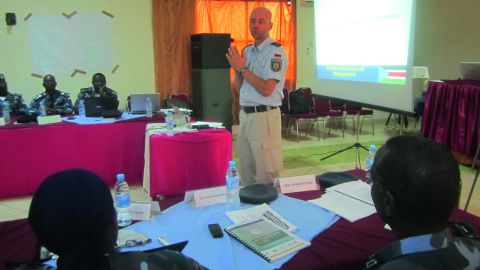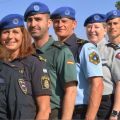Since the end of July, Hürth-born criminal director Stefan Schwarz has been working at the United Nations in New York for the second time, training police officers from 80 countries for international operations and teaching them the principles of the rule of law. As he did from 2013 to 2017, he is working for the Integrated Training Service.
"I am the first German to take on this responsible role for the second time," he states. The commission selected him from more than 70 applicants. Restoring peace is meaningful and fulfilling, says the 55-year-old. "I can even continue some of the projects I helped initiate a few years ago."
Most recently, Schwarz was responsible for robbery and property crime at Essen police headquarters and for 80 employees. However, the Rhinelander, who taught "International Peacekeeping" at Ruhr University Bochum, has now been drawn abroad again. He has signed up to the UN for two years with the chance of a two-year extension.
Developing and certifying training programs, qualifying trainers and contributing to service regulations and decrees on peacekeeping are among his tasks, as are visits to conflict regions. But because of corona, some things are different for the time being.
Until the end of September, Schwarz was not even able to enter his office in the UN building on the East River. He still works largely from his home office. He found a house for his family in upstate New York - half an hour by train from Manhattan. His wife Susanne and daughters Lina (11) and Jonna (13) have since joined him. Only son Leon (21), who is already studying, is staying in Germany for the time being.
Stefan Schwarz hopes to be able to travel like he used to soon. The "world policeman" has always been curious to get to know cultures and state structures up close. This helps him to "find a common denominator" with his colleagues, he says. Many of them come from authoritarian countries where people are treated differently.
"That's why we need empathy so that we can consistently persuade the UN police to respect human rights," says the police officer on leave from the state of North Rhine-Westphalia and seconded by the Federal Republic of Germany. In situations where violence escalates, the weak - minorities, children, women - are particularly at risk. "We want to protect people."
Stefan Schwarz has never doubted the value of international police missions. Even the forces from countries with a problematic democracy index generally behave in an exemplary manner. "This is probably also due to a special helper attitude," says the German. Police officers don't wait for an order in a crisis, they want to do something. "That connects people across all continents."

